|
|
|
|
|
|
|
|
|
|
|
|
|
|
|
|
|
|
|
|
|
|
|
|
|
|
|
|
|
|
||
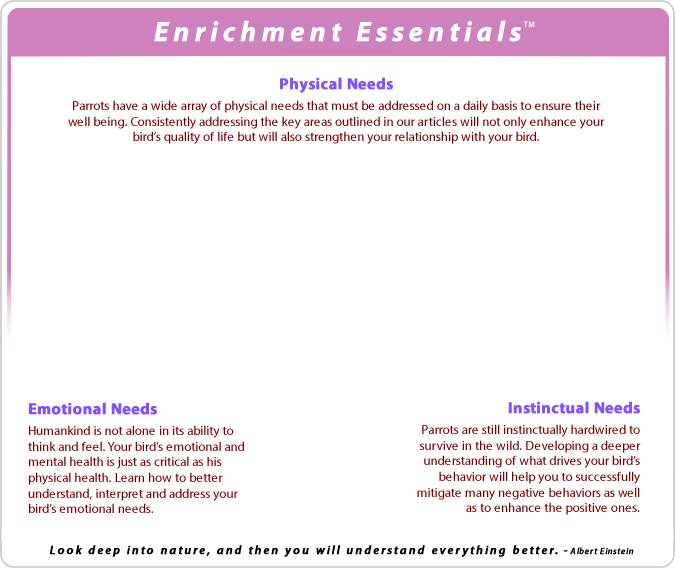
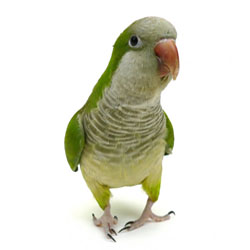 Welcome to Avian Enrichment where our mission is to provide information to bird owners that will foster a deeper understanding of the emotional, instinctual and physical needs of parrots. We believe, that the better we understand our birds, the better we can ensure that they will live happy, healthy and fulfilled lives as our companions.
Welcome to Avian Enrichment where our mission is to provide information to bird owners that will foster a deeper understanding of the emotional, instinctual and physical needs of parrots. We believe, that the better we understand our birds, the better we can ensure that they will live happy, healthy and fulfilled lives as our companions.
We hope that the information presented within our site will inspire our visitors to learn more about their birds and to take action to enrich their lives to the fullest extent possible.
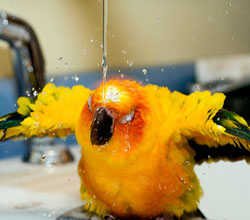 As caretakers of these marvelous creatures we must provide for their physical needs to the very best of our abilities. By consistently addressing all of the key areas outlined in our articles you will not only enhance your bird's quality of life but will also strengthen his relationship with you.
As caretakers of these marvelous creatures we must provide for their physical needs to the very best of our abilities. By consistently addressing all of the key areas outlined in our articles you will not only enhance your bird's quality of life but will also strengthen his relationship with you.
To learn more about your parrot's physical needs click here.
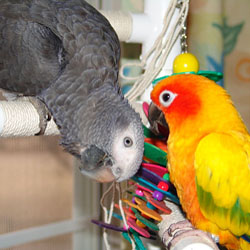 Parrots have been described as having the emotional equivalent of a 2 year old child. We wouldn't think of leaving a toddler locked alone in a room deprived of opportunities for social interaction, nurturing, intellectual challenge or guidance for several hours a day and expect them to develop into a healthy, happy and fully functioning beings. We also can't expect this of our parrots. As with children, parrots need a lot of patience, attention and nurturing guidance, as well as opportunities to learn and explore.
Parrots have been described as having the emotional equivalent of a 2 year old child. We wouldn't think of leaving a toddler locked alone in a room deprived of opportunities for social interaction, nurturing, intellectual challenge or guidance for several hours a day and expect them to develop into a healthy, happy and fully functioning beings. We also can't expect this of our parrots. As with children, parrots need a lot of patience, attention and nurturing guidance, as well as opportunities to learn and explore.
To learn more about your parrot's emotional needs click here.
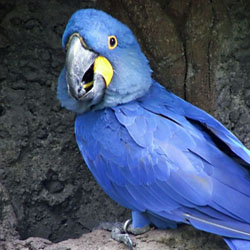 Regardless of the fact your baby parrot may have been born in captivity, parrots are still instinctually hardwired to survive in the wild. Unlike dogs and cats who have been selectively bred and domesticated over several millennia, parrots have only been bred domestically for a few generations and therefore they are not that different (physically or psychologically) from their wild counterparts.
Regardless of the fact your baby parrot may have been born in captivity, parrots are still instinctually hardwired to survive in the wild. Unlike dogs and cats who have been selectively bred and domesticated over several millennia, parrots have only been bred domestically for a few generations and therefore they are not that different (physically or psychologically) from their wild counterparts.
Because parrots are driven by their instinctual needs they may behave in ways that sometimes makes life frustrating and difficult for both the bird and their caregivers.
To learn more about your parrot's instinctual needs click here.
Comments powered by CComment